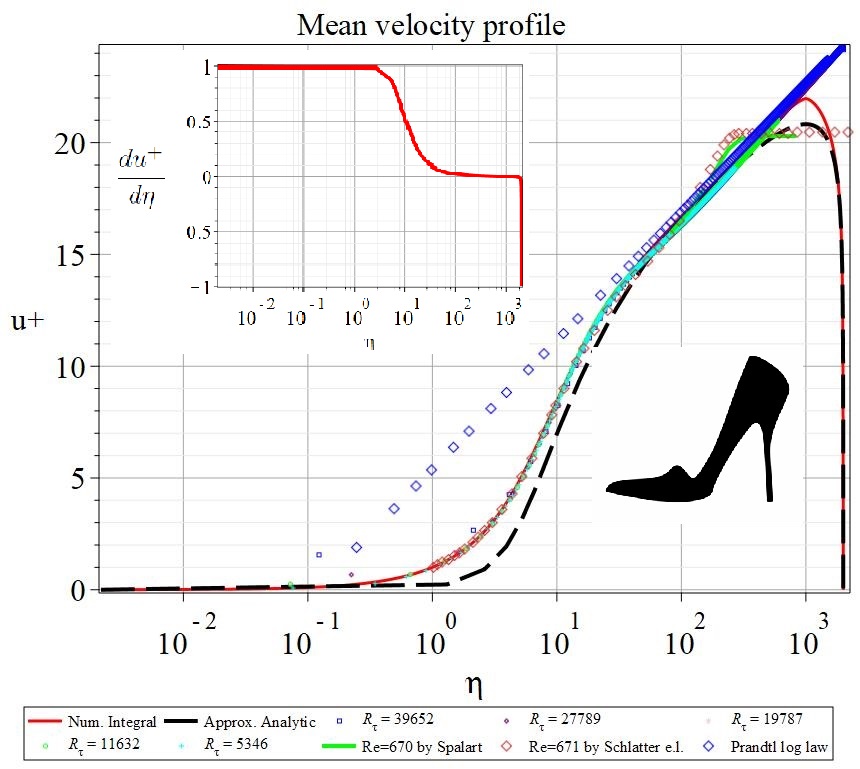The turbulent Poiseuille flow between two parallel plates is one of the simplest possible physical situation, which has been studied intensively in literature. Different mixing lengths are used, however no one has simultaneously considered boundary conditions of two walls together with damping effects from two walls. In this paper, we propose an enhanced Prandtl-Driest mixing length that not only satisfies all boundary conditions but including both walls' damping effects. With our new formulations, we numerically solve the problem and even further propose an explicit approximate solutions. As applications of our solutions, the total velocity, the total shear stress, the energy dissipation density, the energy balance, the Kolmogorov scale law and friction of turbulent Poiseuille flow are to be studied in detail. The study discoveries that the high heels profiles of both mean and total velocity are universal for all wall-bounded turbulent flows.

